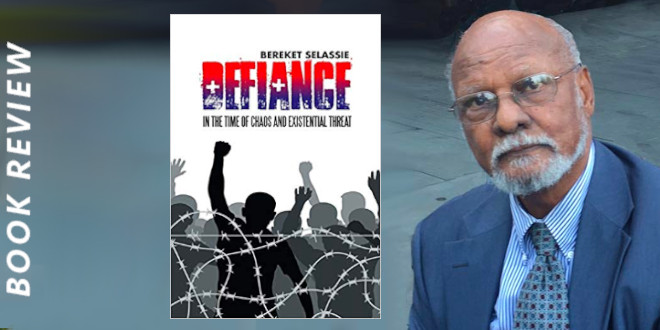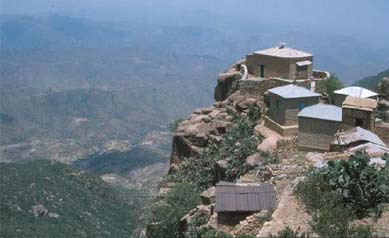The Opposition We Have, Not The Opposition We Wish To Have

This archived article by Semere T. Habtermariam first appeared on January, 2005. We are republishing it here to help reflect on what was current ten-years ago.
In a seemingly nonchalant fashion, some of us are in the habit of pointing the faults of the opposition. A friend argues that it is time to move on, we can’t afford to suffer from the paralysis of analysis. Criticism for its own sake is not healthy and there must be a purpose to what we say and to what we engage in. Saying the opposition is ineffective, weak and incompetent is to state the obvious, but it is what it is, and we’ve to learn to deal with it. As a society, we must not let this morass of negativity and indifference castrate our will to fight for what is right for all of us- overthrowing tyranny and installing democracy. This and this alone, according to my friend, should be our lightening rod.
My friend echoes a sentiment that is shared by many other Eritreans. His rationale reminded me of Donald Rumsfeld, the US Secretary of Defense. When Rumsfeld was asked about the lack of armored vehicles in Iraq, he responded, “you go to war with the weapons you’ve and not with the weapons you wish to have.” And hence, the title of my article, “we deal with the opposition we have and not with the opposition we wish to have.”
I see a lot of wisdom in what my friend says, but, one also, could easily argue that “we need to deal with the government we have not with the government we wish to have.” In fact, there are a lot of decent Eritreans who advocate a direct engagement with the government and some have even urged the regime to reach out to all Eritreans, regardless of their political persuasions. I appreciate their reconciliatory tone but hell will freeze before the authorities in Asmara attempt to heal the wounds of the Eritrean people. Others have endorsed this approach on the rationale that “if you can’t win them join them.” Good for us, we don’t have to choose between either approach. They are merely academic postures in a non-academic society.
I completely empathize with my friend, but I can’t help venting out my frustrations and disappointments. The opposition, to some extent, is as guilty as the ruling regime for the misery of the Eritrean people. There is, of course, no moral equivalency between the regime and the opposition. The regime is perpetrating evil by sentencing the Eritrean people to a life of misery, while, the opposition has unilaterally rendered itself incapable of defending the Eritrean people. It is not that my friend does not agree with me, but he is of the opinion that we need to channel that frustration to be a force of good. I halfheartedly agree with him, but, then, where do we differ, and why do we sometimes get aggravated by each other, even if it was for fleeting seconds. My friend and I are optimists and we’re eternally hopeful for a better tomorrow. It is not that I’m fastidious, whinny, overly critical and do not rejoice the little positive steps the opposition is making. I do. But I want our hopes and aspirations to be grounded in reality.
I believe it’s not that important where the opposition is today but it is critically important where it is heading. History is part of the puzzle we call today and the future and it must weigh in, granted in due proportion, in framing our vision and in stirring our aspirations. This, I believe is where my friend and I slightly differ. I don’t see the wisdom of suppressing the pessimistic history of the opposition, just for the goody-goody feel of being an optimist. For decades the people in the opposition have relegated themselves to the periphery of the periphery and they were not even remotely significant to what has driven the fundamental changes that took place in the political life of the country. They are rooted in a political climate of intellectual dormancy, pontification and recidivism, and yet, they have not shown reassuring signs that they are changing. The political calculus of expediency and personality-driven realignments must not be seen as fundamental political changes. The opposition, as yet, has not done, the intellectual and moral soul-searching, that almost, in a scientific rule-like, precedes fundamental political changes. The opposition must first expiate itself from the crippling and pervasive culture of denial, distortion and delusion that it has incubated for so long. The parochial politics that reigns supreme in the opposition must simply remain what it is, parochial, and subservient to a unifying national agenda.
I’ve asked many people to explain to me the difference between the so many splinter groups in the opposition. The most I’ve received so far ranges between a total dismissal of differences and a historical rationalization of the divisions with utmost disregard to common aspirations. There has been no meaningful attempt to explain this seemingly inexplicable Eritrean phenomenon. Without a sincere and genuine attempt to understand our problem, we would never be able to prescribe the solution. Having a consensus of what the problem is, is a sure way to reconcile differences and heal wounds. This does not have to necessarily occur at the dialogue table. In fact, most of it has to be done at the organizations’ media outlets and publications. So far, no Eritrean, whether at the organizational or individual level, has articulated the Eritrean human condition and how it can be improved upon. I know, it is quite fashionable to talk about the non-existent Eritrean intellectuals and one thing that is notoriously absent in the Eritrean political landscape is intellectual talk. Yes, we do have academics, professionals and highly educated Eritreans, but that does not elevate them to the status of intellectuals. Perhaps, because, we don’t have intellectuals, we’ve not been able to make sense of the disarray in the opposition and the demise of hope and self-confidence of a hopeful nation and proud people under a tyrannical regime that is blotting the very Eritrean identity that we so much sacrificed for.
I’ve grown to accept the opposition for what it is and for what it was, but I’m not ready and willing to cheer for it, when I’m not sure of where it is heading. From our recent history, we’ve learned the bitter lesson that we rid Eritrea of a foreign tyrant only to replace him with a more brutal domestic tyrant. I oppose the regime in Asmara for what it failed to be, democratic, government of law and justice-oriented. I hate the dictatorial system with passion, but that is not the only source of my motivation to seek change. My love and unflinching commitment to democracy is a source of tremendous motivation. I want to see a democratic Eritrea- that is our final destination. The seeds of democracy must, however, be planted today. It is absolutely necessary that the opposition becomes a force of a democratic change if it wants to win the hearts and minds of people like me.
I believe the biggest mistake the regime made was to forget that its main mission was to lay the foundations of democratic governance. One can attain immortality not by ruling for multiple decades, but by instituting governmental structures that do justice to the living, the dead and posterity. Political wisdom is to have enough ambition to aspire for bigger and better things and enough humility to know your limitations. Our Isaias, however, has plenty of the former and none of the latter. The opposition should not be his mirror-image.
The oppositions’ tacit mandate is to shorten the life of tyranny and usher in democracy. The opposition does not have any mandate of trying to solve Eritrea’s societal and political ills. It can, however, lay down a conducive climate where the Eritrean people, in a democratic Eritrea, work them out over a period of time with diligence, patience and wisdom.




Awate Forum